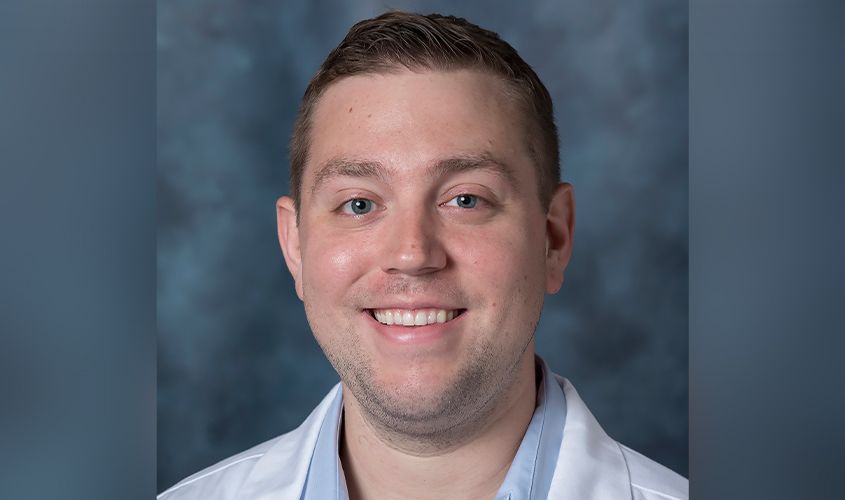 As the coronavirus pandemic brought the world to a halt, Eric Vail, MD ’13, went from cancer geneticist to COVID-19 diagnostician and researcher.
As the coronavirus pandemic brought the world to a halt, Eric Vail, MD ’13, went from cancer geneticist to COVID-19 diagnostician and researcher.
“New York had its major surge in March. We had ours in December,” said Dr. Vail, director of the clinical molecular pathology laboratory at Cedars-Sinai Medical Center in Los Angeles. “We’re a low-volume, high-specialty lab that normally does 1,300 next generation sequencing cancer tests a year. Since COVID happened, we have done over 100,000 diagnostic PCR tests over the last year alone.”
When the region experienced a dramatic uptick in cases, Dr. Vail and his team were asked to investigate its origin. Their findings were published in a recent edition of the Journal of the American Medical Association (JAMA), with Dr. Vail serving as the co-senior author.
What prompted the research, and what did it discover?
At Cedars-Sinai, both our ICUs and main floors were overflowing during the holidays. That’s when hospital administration asked if we had seen the UK variant in our population. When we analyzed sequencing data, we didn’t find that variant, but there were 70-80 cases that all had the same mutations. We said, “this is something different.”
It wasn’t documented in any of the public databases at that time. We did some more analysis and found a cluster of newer mutations in the spike protein—what gives the virus its “corona (crown)”—which is the portion of the virus that attaches to the human cell and allows entry. We then went back into the public databases and saw it just exploded in November right along with our local surge in cases.
What did you learn from this experience?
It’s important from a public health and epidemiological standpoint to know what this virus is doing and how it’s doing it. If the infectivity increases, we can tailor our recommendations around it, but if you don’t look for it, you’ll never know.
It also pointed out the lack of unified public sequencing being done in the United States. There’s a lot of sequencing being done, but it’s very disparate and disconnected. It’s being done in 50 different places without centralized command and control.
What are variants, and how do they come about?
Viruses, and especially RNA viruses, change. Over time, as they go into new people, they have replication errors. When that happens, most of the time it’s deleterious, there becomes less of it, and it goes away. Every once in a while, though, a mutation gets increased fitness for its environment.
Variants come from our behavior, which is, in my opinion, empowering. You have the ability to wear a mask, wash your hands, social distance, and do your part. The virus isn’t plotting its way to get around us. If we do all the things we’re supposed to do, these variants will not emerge.
How well will the current vaccines address these variants?
I think it’s very important not to turn these variants into “scariants.” We’re trying to empower everyone with knowledge, and the knowledge we have right now is that if you can get a vaccine, go get a vaccine. Multiple studies have shown limited to no difference in clinical or immunological change in response to the vaccines from variant to variant. If we all get vaccinated, we can stamp out the coronavirus and get out of the pandemic together.
– Brett Mauser

